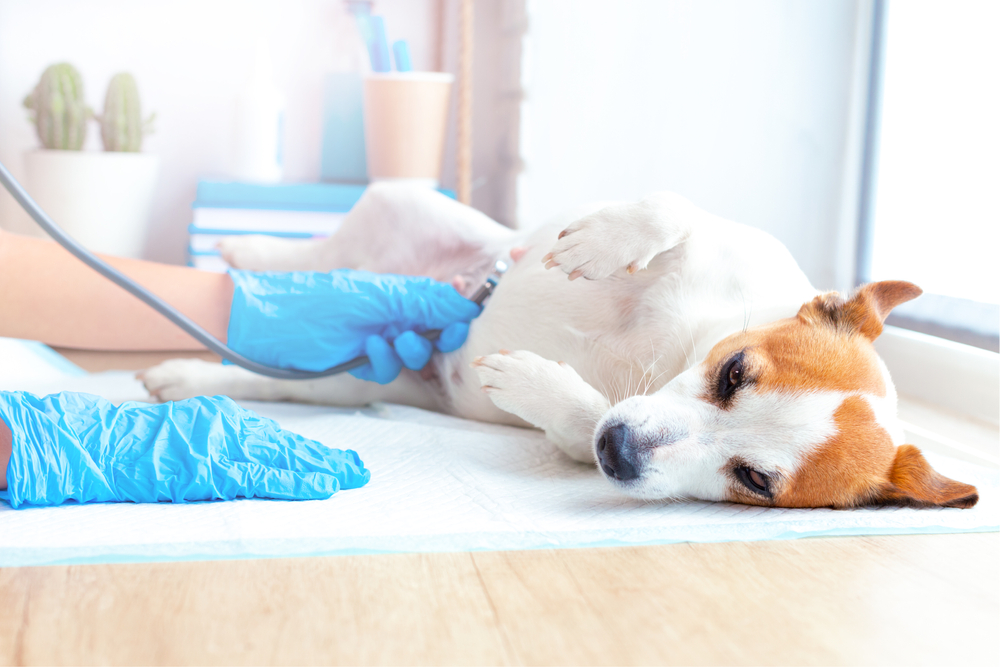Pregnancy in Dogs and Cats
The reproductive system of a female animal is much different than that of a human woman. Learning about pregnancy in dogs and cats can help you spot when your own pet might be expecting, and how to help them through their pregnancy.
The team at Oakland Veterinary Referral Services is here to guide you through pregnancy in dogs and cats to encourage healthy births.

Pregnancy in Dogs and Cats: Timeline
Dogs and cats both have a gestation period of only about 58-68 days. In the span of just a few short months, they can grow a litter of puppies or kittens to term. The fetuses are not even visible on X-rays until about day 45 of the pregnancy. About 20 hours before giving birth, an expectant pet mama will start to get very restless, and her body temperature will drop as her body prepares for birth.
Pregnancy in Dogs and Cats: Signs
There are a few telltale signs that will let you know your female dog or cat has some buns in the oven. These include:
- Significant changes in appetite: Some dogs will be hungrier with more mouths to feed, while others might actually eat less because they feel nauseated.
- Vomiting: Morning sickness also affects pregnant pets.
- Lethargy: If your intact female dog or cat suddenly gets tired very easily, it could be because she is sharing her body with some little ones.
- Nipple appearance: The nipples will grow in size and become a darker shade of pink the closer she gets to her due date.
- Bigger belly: If you notice a little extra firmness or roundness around your dog or cat’s tummy, it could be because she is pregnant.
- Changes in behavior: Hormonal changes could affect a pregnant pet’s personality. A once independent dog might become very clingy, for example. Or a typically aloof cat suddenly can’t get enough cuddles. Some pets even become irritable.
- Nesting behavior: As a pregnant pet gets closer to her due date, she might start nesting to prepare for the arrival of her babies.
Caring for Pregnant Pets
Once you’ve confirmed with your veterinarian that your pet is in fact expecting, be sure to cater to encourage the healthiest pregnancy. In order to care for a pregnant pet, you should:
Talk to the Veterinarian About Nutrition
If you are already feeding your pet a quality food, your vet might not suggest making any changes in diet until the last few weeks of the pregnancy. In fact, changing the type of food or amount without veterinary approval could cause problems for your expecting mama. When she reaches the last few weeks of the pregnancy, she will need to eat a little more food. It’s best to give this in small portions throughout the day to avoid causing her discomfort.
Encourage Exercise
During much of the pregnancy, it is perfectly safe for your pet to continue with normal exercise. Once her belly starts to get bigger, though, you might want to spread out her active time to shorter bursts throughout the day. Instead of a long walk, for example, take your dog for a few short ones. Your cat will probably naturally spend more time sleeping, but a few active games throughout the day can help her. Be sure to minimize stress and keep pets as calm as possible, though, as anxiety could hurt the babies.
Visit the Vet Regularly
Regular veterinary visits throughout the pregnancy can help ensure it is going smoothly. The vet will perform a series of tests to look for signs of parasites or other potential issues that could affect the pregnancy. They will also tell how to spot when labor is near.
At OVRS, we believe in pairing with owners to care for pets, including preparing for pregnancy in dogs and cats. From our impressive selection of specialty veterinary services to our useful owner resources, we try hard to give you and your pet what you need. Call (248) 334-6877 to learn more.


